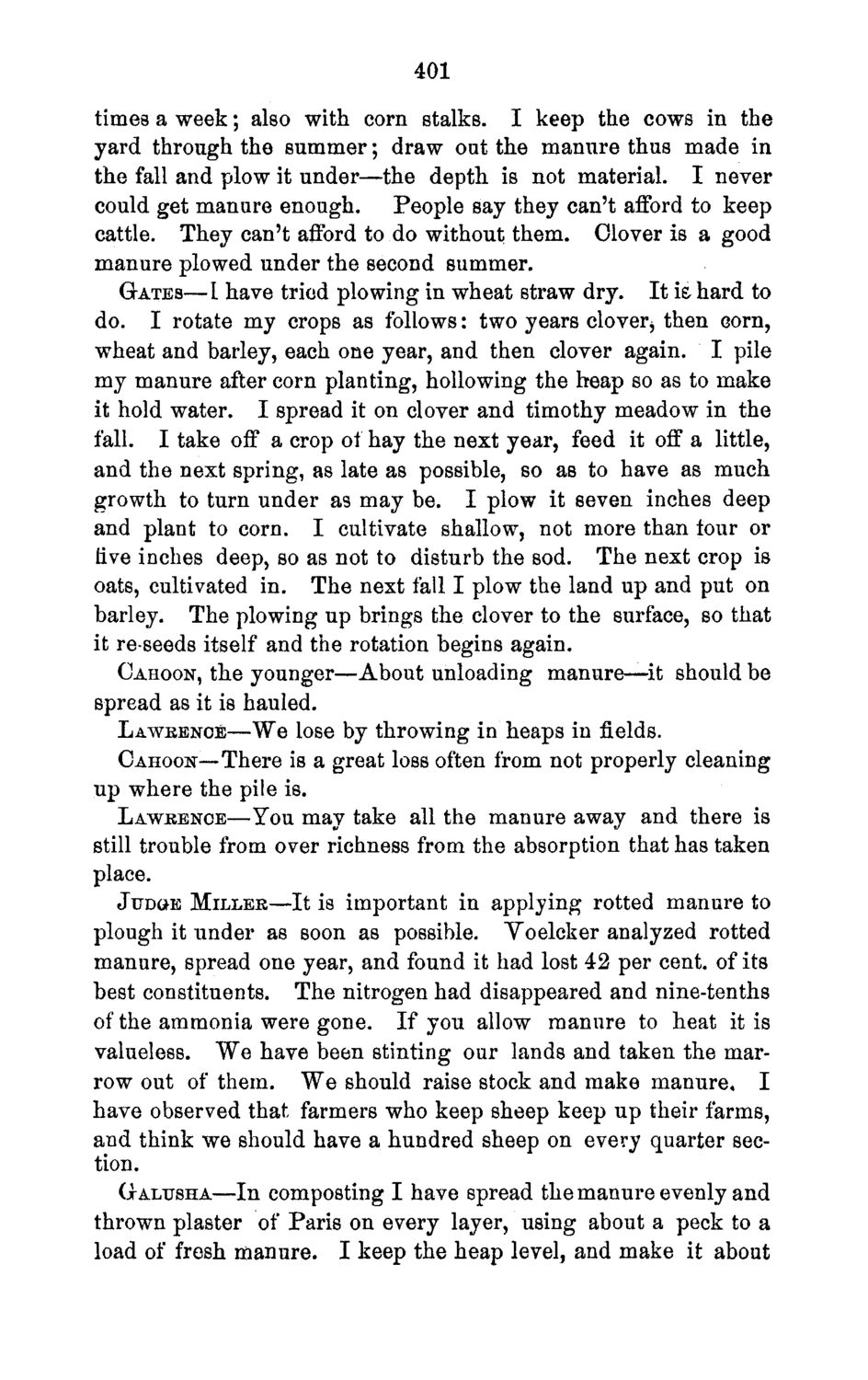| |
| |
Caption: Board of Trustees Minutes - 1870
This is a reduced-resolution page image for fast online browsing.

EXTRACTED TEXT FROM PAGE:
401 times a week; also with corn stalks. I keep the cows in the yard through the summer; draw out the manure thus made in the fall and plow it under—the depth is not material. I never could get manure enough. People say they can't afford to keep cattle. They can't afford to do without them. Olover is a good manure plowed under the second summer. GATES—I have tried plowing in wheat straw dry. It i& hard to do. I rotate my crops as follows: two years clover j then corn, wheat and barley, each one year, and then clover again. I pile my manure after corn planting, hollowing the heap so as to make it hold water. I spread it on clover and timothy meadow in the fall. I take off a crop of hay the next year, feed it off a little, and the next spring, as late as possible, so as to have as much growth to turn under as may be. I plow it seven inches deep and plant to corn. I cultivate shallow, not more than four or five inches deep, so as not to disturb the sod. The next crop is oats, cultivated in. The next fall I plow the land up and put on barley. The plowing up brings the clover to the surface, so that it re-seeds itself and the rotation begins again. CAHOON, the younger—About unloading manure—it should be spread as it is hauled. LAWRENCE—We lose by throwing in heaps in fields. CAHOON—There is a great loss often from not properly cleaning up where the pile is. LAWRENCE—You may take all the manure away and there is still trouble from over richness from the absorption that has taken place. JuDaE MILLER—It is important in applying rotted manure to plough it under as soon as possible. Yoelcker analyzed rotted manure, spread one year, and found it had lost 42 per cent, of its best constituents. The nitrogen had disappeared and nine-tenths of the ammonia were gone. If you allow manure to heat it is valueless. We have been stinting our lands and taken the marrow out of them. We should raise stock and make manure, I have observed that farmers who keep sheep keep up their farms, and think we should have a hundred sheep on every quarter section. (JTALUSHA—In composting I have spread the manure evenly and thrown plaster of Paris on every layer, using about a peck to a load of fresh manure. I keep the heap level, and make it about
| |